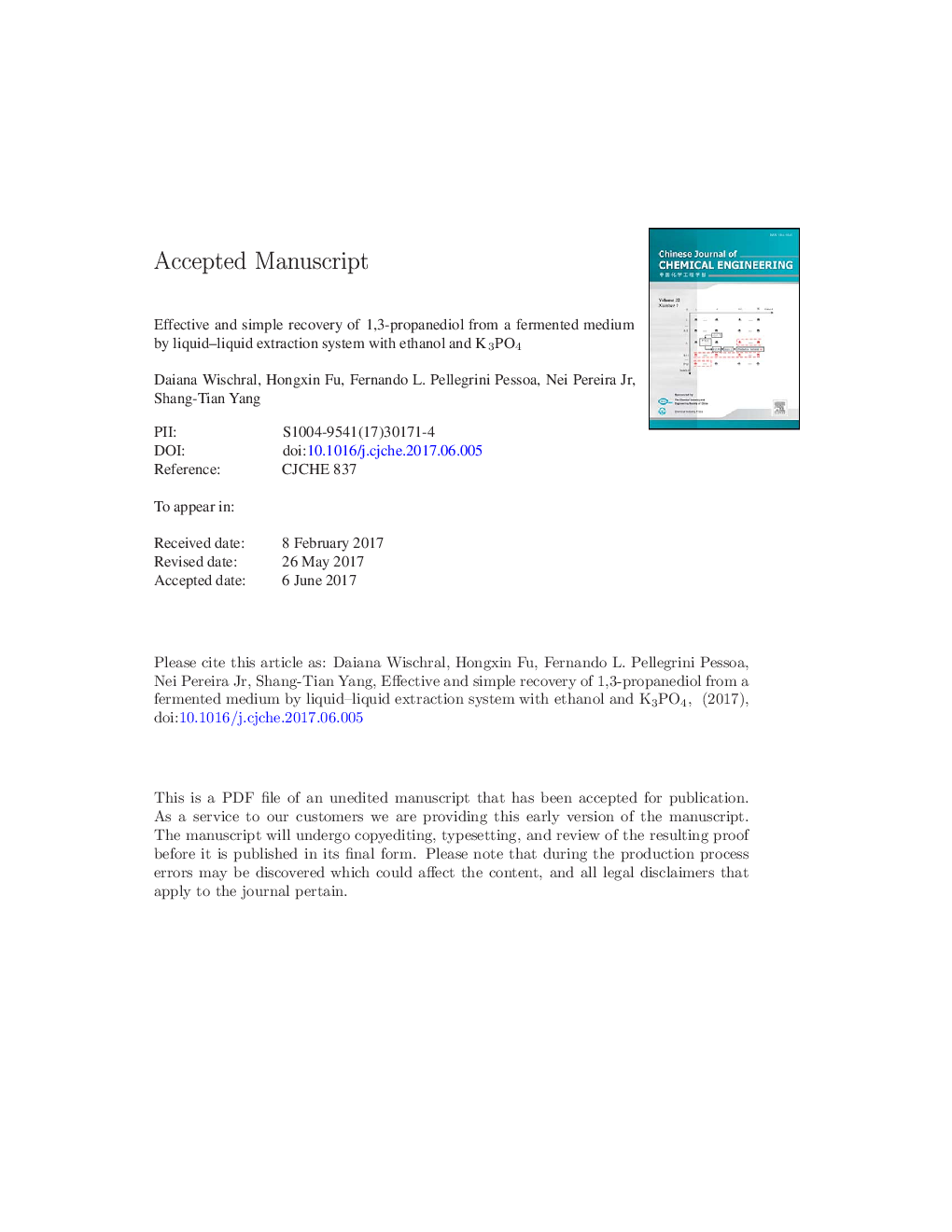| Article ID | Journal | Published Year | Pages | File Type |
|---|---|---|---|---|
| 6593177 | Chinese Journal of Chemical Engineering | 2018 | 22 Pages |
Abstract
1,3-Propanediol, traditionally obtained from fossils, has numerous industrial applications, including use in the production of high performance polymers. The microbial production of 1,3-propanediol presents several opportunities, and the final purity grade determines its price and commercial viability. The development of novel separation technology could improve the economic viability of the bioproduction of 1,3-propanediol. Thus, we investigated salting-out extraction as a novel process for 1,3-propanediol recovery from fermentation broth. Initially, a screening for the best salt/solvent combination was conducted and then optimized using the response surface methodology. The solvents studied were methanol, ethanol, isopropanol and acetone, and the salts examined were K2HPO4, Na2CO3, K2CO3, (NH4)2SO4, NaHPO4, K3PO4 and C6H5NaO7. The optimal extraction system consisted of 34 wt% K3PO4, 28 wt% ethanol, and 38 wt% fermentation broth containing 23.0 g·Lâ 1 1,3-propanediol, which gave the highest partition coefficient of 33 and recovery yield of 97%. The results demonstrated that salting-out extraction was a promising method for 1,3-propanediol recovery from fermentation broth.
Keywords
Related Topics
Physical Sciences and Engineering
Chemical Engineering
Chemical Engineering (General)
Authors
Daiana Wischral, Hongxin Fu, Fernando L. Pellegrini Pessoa, Nei Jr, Shang-Tian Yang,
